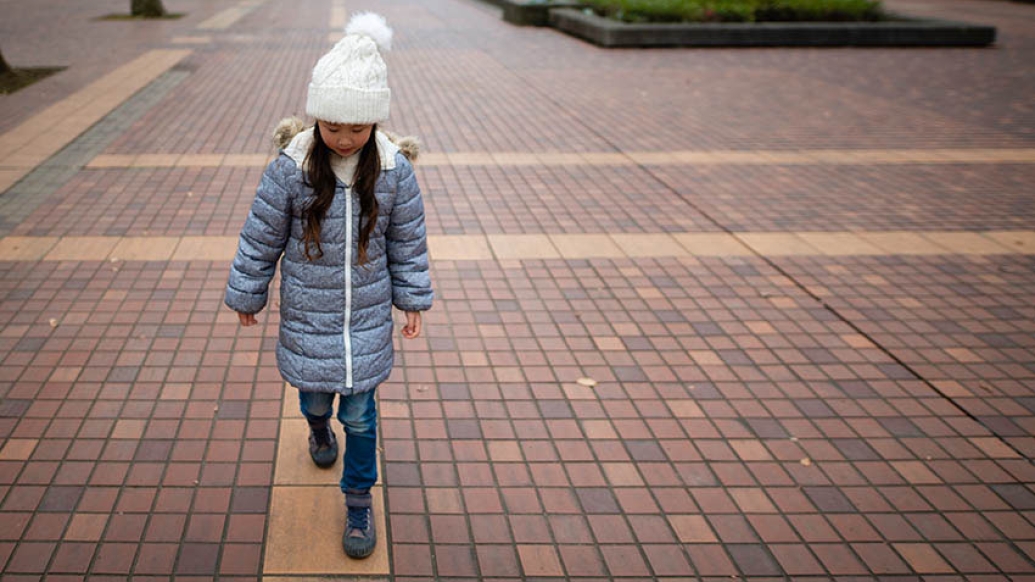Important signs for parents to look for and a new study that evaluates the effectiveness of cognitive behavioral therapy as a treatment option.
5:00 AM
Author |

Does your child constantly need to re-write, re-read or re-do projects or work? Are they constantly seeking reassurance? Do they often stress about dirt and germs? If so, your child might be living with obsessive compulsive disorder, or OCD, a condition affecting one in every hundred American children.
Parents may consider symptoms of OCD as just a phase their child is experiencing, but they're actually predictors of OCD-related struggles that can carry on into adulthood, and often times, pediatricians don't screen for it.
A child with OCD often exhibits repetitive, farfetched and unrealistic thoughts and behaviors. These actions often fall into a four symptom clusters, which Michigan Medicine psychiatrist Kate Fitzgerald, M.D. says includes:
-
Harm and safety worries: Does your child worry about properly locking and re-locking doors? Are they often worried about safety and potential thieves in the neighborhood?
-
Contamination and cleaning worries: Does your child obsess about washing their hands properly? Are they overly focused on dirt and germs?
-
Symmetry and ordering: Does your child insist on drawing in the lines or not stepping on cracks while walking? Do they insist on clothes looking and feeling "even" or keeping things in perfect order?
-
Magical thinking or superstitions: Is your child preoccupied with unlucky numbers, colors, certain words, sayings or superstitions and link them to catastrophe or "bad things" that might happen?
"Most children have occasional obsessive thoughts or need for sameness, such as wanting to hear their favorite story read the exact same way, have clothes feel or look 'just right', or feeling safest when they get ready for bed in a particular order," Fitzgerald said. "But if these sorts of worries affect you or your child for more than one hour a day, it might be time to see a specialist."
MORE FROM MICHIGAN: Sign up for our weekly newsletter
Diagnosing OCD
OCD isn't considered a disorder until it causes one of three things:
-
Affects your child more than an hour a day.
-
Really upsets them or makes them sad or anxious.
-
Interferes with family (e.g., temper tantrums), causes distractions at school or gets in the way of interactions with friends.
As with all anxiety disorders, it's better to address OCD as early as possible. When OCD goes untreated, it can become more severe and evolve into depression.
SEE ALSO: Using Cognitive Behavioral Therapy to Treat Teen OCD
Treating kids early can save them a lifetime of distress. There is also evidence that cognitive behavioral therapy is actually more effective at younger ages.Kate Fitzgerald, M.D.
Studying cognitive behavioral therapy to treat OCD
Early evaluation and CBT treatment can provide benefits that last a lifetime. CBT is considered the gold standard treatment for the condition and it has no side effects.
Currently, Fitzgerald and her team are conducting a study to determine how effective cognitive behavioral therapy can be for children with OCD.
CBT teaches patients to break the link between repetitive thoughts and ritualistic behaviors. By resisting the urge to perform a compulsive behavior, people with OCD learn that obsessive thoughts are insignificant, which lessens the anxiety that the thoughts produce. CBT can lead to significant improvement in functioning and quality of life.
LISTEN UP: Add the Michigan Medicine News Break to your Alexa-enabled device, or subscribe to our daily updates on iTunes, Google Play and Stitcher.
"Treating kids early can save them a lifetime of distress," Fitzgerald said. "There is also evidence that cognitive behavioral therapy is actually more effective at younger ages," Fitzgerald explains.
The study group is currently enrolling children ages seven to 12, which is free to eligible participants and includes a diagnostic evaluation and one to two MRI scans.

Explore a variety of healthcare news & stories by visiting the Health Lab home page for more articles.

Department of Communication at Michigan Medicine
Want top health & research news weekly? Sign up for Health Lab’s newsletters today!





